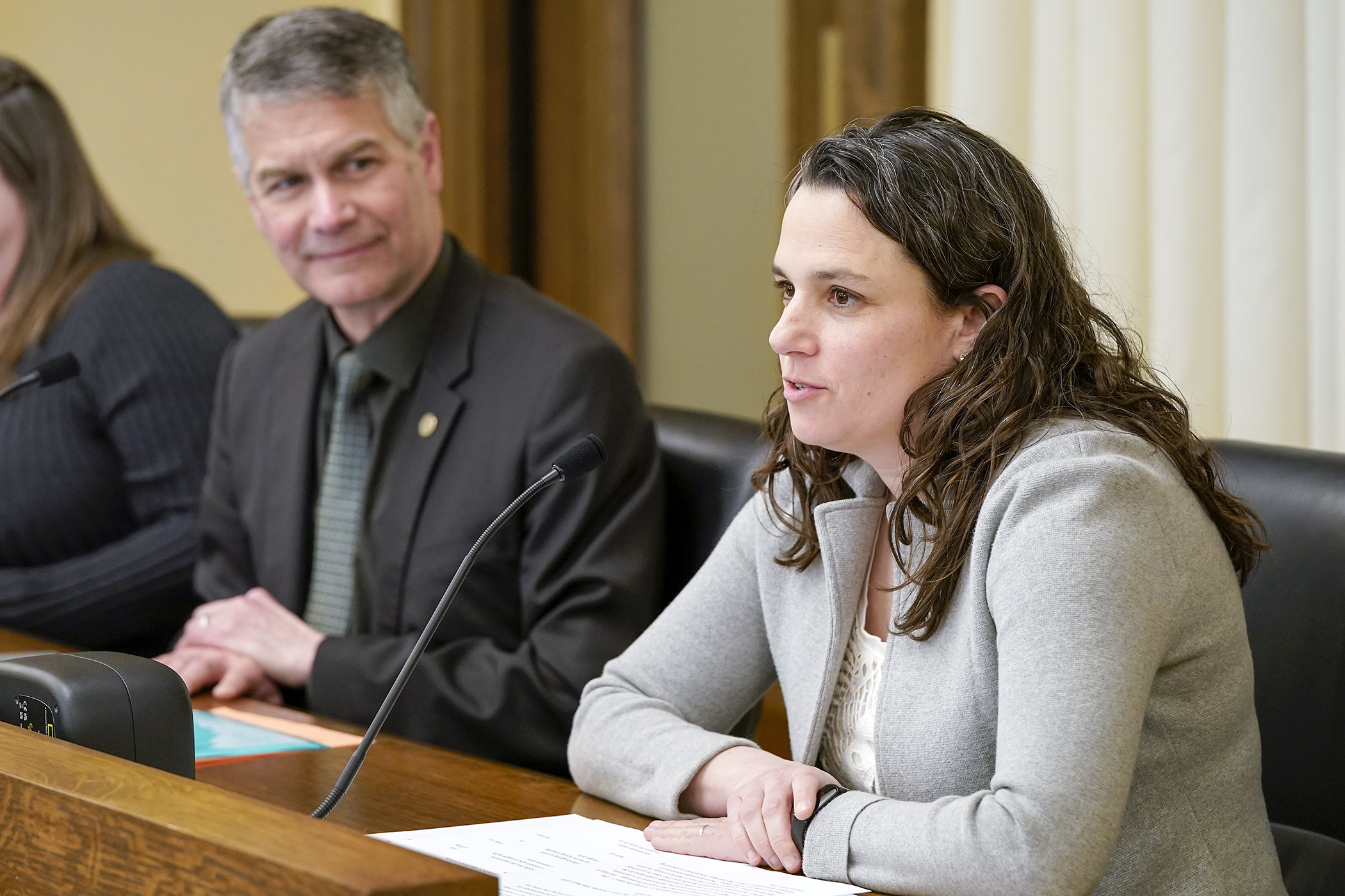Energy assistance expansion could help cool things down

In 2024, more than 91,000 Minnesota households had their power shut off because residents were behind in their utility bills, the highest annual total since anyone started counting. Past-due bills for heat and electricity currently total about $130 million.
That’s according to Annie Levenson-Falk, executive director of the Citizens Utility Board. Hers is one of many energy-adjacent nonprofits that teamed up with utilities that operate in Minnesota to write a letter to the House Energy Finance and Policy Committee. It came up as part of Tuesday’s discussion of HF771, a bill sponsored by Rep. Larry Kraft (DFL-St. Louis Park).
“You can see from the handout that the bill has broad support from organizations that may not typically agree on much,” Kraft said.
The proposal would establish a supplemental energy assistance grant program that would help low-income households pay for heating, cooling and other home energy costs, appropriating $36 million for the program in fiscal year 2026.
After replacing the bill with a delete-all amendment, the committee laid the bill over for possible omnibus bill inclusion.
“This would build on the federal Low Income Home Energy Assistance Program, or LIHEAP,” Kraft said. “LIHEAP provides vital relief during the winter, and has been doing so for over 40 years. … However, the need is way more than what’s available, and has been for several years. Only about a quarter of eligible Minnesota households receive assistance.
“Unlike several states — including our neighbor, North Dakota — Minnesota does not provide assistance during the summer months.”
So the bill would create a program to do that. It would also help open the door to weatherization assistance.
Michael Schmitz, director of the Department of Commerce’s Energy Assistance Program, said that federal LIHEAP money coming to the state has been shrinking by the year. What was over $250 million in 2022 was $125 million in 2024.
“This is primarily a Greater Minnesota bill, as 75% of energy assistance today goes to households outside the seven-county metro area,” Kraft said.
Rep. Mike Wiener (R-Long Prairie) represents one of those rural districts.
“Why do we have so many people who are using this?” Wiener asked. “The best way for us to fix this problem is to actually let people keep more of their money, so that we don’t have to have them looking for subsidies. … I would like to solve the issue, instead of keeping putting Band-Aids on it. I would like to make it so that 91,000 goes down to next to nothing.”
“I share your goal and your inclination to address root causes,” Kraft said. “The people requiring this assistance generally have low tax burdens because their incomes are so low. The core issue is that people’s incomes are not high enough.”
Related Articles
Search Session Daily
Advanced Search OptionsPriority Dailies
Speaker Emerita Melissa Hortman, husband killed in attack
By HPIS Staff House Speaker Emerita Melissa Hortman (DFL-Brooklyn Park) and her husband, Mark, were fatally shot in their home early Saturday morning.
Gov. Tim Walz announced the news dur...
House Speaker Emerita Melissa Hortman (DFL-Brooklyn Park) and her husband, Mark, were fatally shot in their home early Saturday morning.
Gov. Tim Walz announced the news dur...
Lawmakers deliver budget bills to governor's desk in one-day special session
By Mike Cook About that talk of needing all 21 hours left in a legislative day to complete a special session?
House members were more than up to the challenge Monday. Beginning at 10 a.m...
About that talk of needing all 21 hours left in a legislative day to complete a special session?
House members were more than up to the challenge Monday. Beginning at 10 a.m...